In part one, Peter Kuznick warns that Trump 2.0 is more dangerous than the original. The generals and advisors who once called him a “moron” are gone — replaced by sycophants in what Kuznick calls a “kakistocracy,” government by the worst people. From threatening to seize Panama, Greenland, and Canada to leading the most corrupt administration in U.S. history, Trump now faces little resistance from Congress, courts, or his own party. Kuznick and Barry Stevens explore how the takeover of cultural institutions mirrors past fascist movements — and how America’s lack of historical memory leaves it vulnerable to repeating old disasters. The most urgent threat: Trump’s unpredictable stance on Ukraine could trigger the war he claims to oppose.
The China Syndrome: The US History of Fear as Foreign Policy – Peter Kuznick Pt. 2/2
Barry Stevens
Welcome to theAnalysis.news. Paul Jay is busy editing How to Stop a Nuclear War, the documentary based on Daniel Ellsberg’s book, The Doomsday Machine. I’m Barry Stevens, Paul’s co-writer in that project, and today I’m hosting theAnalysis.
In just a few seconds, I’ll be back with historian Peter Kuznick, and we’re going to talk about the presidency of Donald Trump, its historical roots, and its implications. Please don’t forget, there’s a donate button, and I’ll be back in just a second.
So joining me today is Peter Kuznick. Peter is a professor of history and the Director of the Nuclear Studies Institute at American University in Washington, D.C., and the co-founder of the Nuclear Education Project. As those names suggest, he’s written extensively on nuclear weapons, their use on Japan in the Second World War, obviously, and he’s very much an expert on the Cold War and the United States.
With movie director Oliver Stone, he co-wrote the Showtime TV series, The Untold History of the United States, and the subsequent book with the same title, which I very much recommend as a corrective to standard narratives. He comments frequently on the media, and we’re very lucky to have him on theAnalysis. Welcome, Peter.
Peter Kuznick
Thanks, Barry. Always happy to be with you.
Barry Stevens
Now, this week, President Trump made an extraordinary speech at the United Nations, where he called global warming a con job and said that immigration was a global disaster, among other rants. This is really just the latest drama in the first eight months of the second presidency of Mr. Trump, in which he’s succeeded, I think, in accumulating a lot of power in the executive branch. He’s attacked universities. He’s attacked the media. He’s rounded up migrants and put them in prison camps, and upended the government. He’s generally had contempt for the rule of law, I would say, and the Constitution of the United States.
There hasn’t been a lot of organized opposition. It doesn’t seem to me. He’s been jokingly called the orange Julius Caesar. That’s my favorite, by the way, or the dime store Duce. But how much of that is a joke, and is it over the top to call this fascism? Obviously, the far right has a long history in the United States in the 1950s, 1930s, and there’s been a long history of militarism and militarism in the United States. Are we seeing something new here, Peter? Is this sui generis, or does this have historical antecedence? How are we to understand this as a historian? How would you understand it?
Peter Kuznick
Well, in the beginning, many people treated Trump as a joke. You remember when he first addressed the United Nations, they laughed at him. He made his speech this week, even saying more outlandish things. People thought he was totally out of his mind, but they didn’t laugh at him this time. They know that he is really dangerous, and he might be unhinged. He might be the biggest narcissist and megalomaniac on the planet. However, he’s also, at this point, the most dangerous.
The United States has always had extreme right-wingers and has always had incipient fascist tendencies. But what Trump represents is an imminent fascist threat. When we talk about fascism, it doesn’t mean Hitlerian fascism. It doesn’t necessarily follow even Mussolini’s playbook. It doesn’t follow the playbook of earlier American fascists. Trump has his own approach to fascism. When we see his total disregard for law and order, for laws, for the Constitution, for the separation of powers, for the independence of the judiciary, for the proper role of the military in American life, for even minimally taking advice and counsel, he doesn’t operate the way other presidents have. Which, especially in the nuclear age, terrifies me.
So, we see him being mercurial. We see him changing on a dime, 180-degree reversals from day to day, sometimes in his policies, public statements, and some things that occasionally seem to make some sense. But if they do, then he’s almost certain to go against them in the near future. I think we’re at a very tenuous moment in our history. Partly because the Supreme Court seems to give him carte blanche and allows him to do anything he wants. Partly because Congress is spineless, venal, and so cowered by him that it won’t stand up to him at all. Partly because he’s turned the Republican Party from a political party into a cult. So we’ve never quite seen this.
He’s got his MAGA base, which is loyal to a fault, no matter what he does. And we see a Democratic Party in complete disarray, without any real leadership, without a sense of direction, without a program, and so Trump is getting away with things. As the Supreme Court says, “He can do what he wants as president, and he can’t be held criminally liable for any of the things he’s done.” The Pentagon has pushed back some, but unlike the first term, when Trump was surrounded by adults who tried to rein him in and prevent him from carrying out his most extreme and malign tendencies and acting on them, all those people are gone.
Now, General Kelly, and all who try to constrain him… Even Rex Tillerson, whom I’m no fan of. I’m not a fan of any of these people, really, but when Trump called for a tenfold increase in U.S. nuclear weapons during the first term, Tillerson called him a fucking moron. Who’s going to call him a fucking moron now? Maybe Jimmy Kimmel, maybe late-night comedians, maybe you and I, but certainly none of the people who’ve got the power to stop him from doing what he’s doing. So we’ve seen in front after front, issue after issue, arena after arena, he’s doing things that no other president has ever done, or certainly not to the extent that he’s done them. So we are really vulnerable to losing…. We don’t have a great, vibrant democracy, but we do have some democracy left, and much of that is what he’s going after.
I saw the other day, I came across Rush Limbaugh, and Rush Limbaugh says in his 1993 book, “See, I told you so.” And he warned his fellow Conservatives, “We have lost control of our major cultural institutions. Liberalism long ago captured the arts, the press, the entertainment industry, the universities, the schools, the libraries, the foundations, etcetera. We could throw in museums, we could throw in mass media, and throw in television.” They’ve gone systematically after all of those institutions that Limbaugh pointed out, the Liberals and the Left have controlled in American life. They’ve systematically reclaimed them for Trump and the extreme right wing in a protofascist element. So we’re in quite a serious predicament as a country right now.
Barry Stevens
But the rise of fascism, if we’re going to compare it to that, the rise of fascism in Spain, Italy, Germany, or other places, followed periods of great difficulty and distress. If there had been an alternative to this, do you think the American people would have backed it? I guess the question is, if the Democratic Party or anybody had delivered on welfare for the people of the United States, whether health care, housing, or income security, would they have been so drawn to this man and his movement?
Peter Kuznick
No, I think part of it is that people are hurting. Also, Americans have no sense of history, zero. We can get into that. But as Zhou Enlai once said, “That’s the charming thing about the Americans. They have absolutely no historical memory.” But George Santayana had a different take on it, where he said– most people know his statement– “If you don’t remember the past, you’re condemned to repeat it.” However, he also said, “A nation without memory is a nation of madmen.” I think we’re in that dilemma because in 2020, the American people voted for Joe Biden, sleepy Joe Biden, who is not a great candidate in any sense, but they voted for him over Trump by seven million votes. They were so tired of Trump, so sick of Trump. But four years later, they forgot how much they disliked Trump, and they voted him back into office. It’s very dangerous to have a country without any sense of history.
Barry Stevens
It reminds me of, I think it was in the 18th Brumaire, Marx saying, “History repeats itself. The first time as tragedy. The second time as farce.”
Peter Kuznick
Yeah, and Trump is farcical. Not only is Trump farcical, but look at the people around him. We have this 19th-century word, kakistocracy, that refers to a government by the worst people. You look at who Trump has appointed for all these different positions. Where do you come up with a Kristi Noem, a Pete Hegseth, and a Marco Rubio? You go down the list of the people he’s surrounded himself with. First of all, they’re enablers, but even worse, they’re the worst kinds of sycophants.
One of the truly extraordinary spectacles of the new Trump presidency is his televised cabinet meetings, where they go around the room and each one tries to outdo the previous one in telling Trump how wonderful he is. “He’s the best-looking president we’ve ever had, the smartest president, the most benevolent president.” There is a spectacle that you don’t see coming out of North Korea. This whole notion of “dear leader.”
Barry Stevens
We also saw this with European leaders. That same sycophants [crosstalk 00:14:31] they come here around the table, which must have been a little more difficult for somebody like Macron, I would imagine, to do, but they did it. They kissed the ring.
Peter Kuznick
It’s an obscene spectacle, and that’s what Trump needs to feed his ego. Even though, how could anybody have any respect for any of these people who are so humble and abase themselves, you know, perform fellatio on him in front of the televised audience. You can’t respect people like that. But this is the kind of massaging of ego that Trump not only needs, but demands in addition to bribes.
So he has all these foreign countries; in order to get a better trade deal, they’ve got to bribe him. We’re going to spend $350 billion on investing in the U.S.. We’ll spend $500 billion, but also from the private businesses and from the corporations. They’ve got to give bribes. So it’s an organized corruption, plus all the money he’s raking in with his crypto deals and this $400 million plane that he’s getting from Qatar, which he’s going to control after his presidency. We’ve never seen this level of corruption.
Let’s talk about the Teapot Dome scandals, the Harding scandals, the Ulysses S. Grant scandals, and the Nixon scandals; they pale by comparison. There’s nothing ever remotely approaching this kind of open corruption, but he does it very openly. There’s no resistance in terms of the other power structures or power centers that are supposed to resist this. This is why if our founding fathers saw what’s going on, they would turn over in their graves because they could not imagine this level of tyranny.
Barry Stevens
Weren’t they specifically concerned about the possibility of this happening, of tyranny?
Peter Kuznick
They couldn’t imagine this level of it so openly, flagrantly, blatantly being done right before the public. So, Trump was correct to talk about the corruption under Biden. When we got to Ukraine, Biden, under the Obama years, was the liaison officer in charge of hundreds of meetings, phone calls, and visits. There was obviously this element of corruption, given his son’s involvement with energy companies in Ukraine and profiting off that, and then the other members of the family profiting off the Biden name. But what that represents is maybe one-hundredth of the level of corruption in the first Trump or the second Trump, especially the second Trump presidency, where all restraints are off.
Barry Stevens
Yeah. With respect to this cult of personality around Trump, which he fosters and which seems to just grow, that has correlates with fascism, obviously, leader worship and other aspects of it, the racism, the contempt for law. But one thing that doesn’t seem to be so true is the desire for military conquest. You saw that in Japan, Italy, and Germany, of course. In fact, I must say, personally, in every way, I would have preferred another president than Trump, but in one way, I thought he was less likely to start a big war, because being a mercantilist, he doesn’t just see the profit in it. Also, the movement behind him really was… His phrase, “Forever Wars,” was a very good phrase, I thought. If it was his originally, I don’t-
Peter Kuznick
No, it wasn’t his originally.
Barry Stevens
But he adopted it. And the movement certainly was against “Forever Wars.” And so I thought in that one way, that was something potentially positive about this presidency. What do you think about that possibility?
Peter Kuznick
I agree with you in principle, but I might take issue with you in terms of the actual practice of that. Trump comes in and he starts talking about taking Panama, taking Greenland, so he’s-
Barry Stevens
And my country, Canada.
Peter Kuznick
Yeah, Canada, too. So he’s pretty open about that, but it’s mostly talk in hot air. If people push back, then he lets go of it. But I think out of stupidity, out of recklessness, out of impetuousness, he could very easily get us involved in another war, even though some of his own inclinations are against it. When I talk about that, I think of the two, three, or four major hotspots. Obviously, the immediate one is Ukraine. We were pushing toward the potential of ending the war through negotiations. When he and Putin met in Alaska, and he rolled out the red carpet for Putin, they came, basically, to an agreement on most of the major points. That Ukraine would not be in NATO, that Russia would keep the 20% of Ukrainian territory that it now holds, and they’d figure out a way for some kind of security guarantees for Ukraine.
Now, I have my ideas on how that would be. Putin made clear he didn’t want NATO in there, the NATO countries. But of the five permanent Security Council members, the one that contributes more troops to international peacekeeping than the other four combined is China. China was Ukraine’s biggest trading partner before the invasion. They have decent relations.
When Brazil and China put forth their 12-point peace plan, point number one was the importance of sovereignty, which was a criticism of Russia for invading the sovereign Ukraine. Point number two was that no nation’s national security should be achieved at the expense of any other nation’s national security, which was a critique of NATO for expanding to Russia’s borders and wanting Ukraine and Georgia to join NATO, which George W. Bush called for fast-tracking in 2008. So, that was a critique of NATO, Ukraine, and the United States.
China’s approach has been fairly balanced. They’ve given a lot of dual-use technology that Russia has been able to make use of, and they’ve helped Russia economically by buying so much more oil, gas, and other trade. But I could see that India plays a huge role in international peacekeeping. There are ways to do that that don’t recreate the NATO presence that Putin was defying and invading, and that could provide some stability there.
So I was very optimistic. But what did Trump do this week? After his absurd UN presentation, he meets with Zelensky, and Zelensky convinces him that Russia is teetering economically, and if we increase the sanctions and we keep giving arms to Ukraine, especially through the Europeans, then Ukraine can actually claw back the 20% of the territory that Russia holds.
Barry Stevens
By the way, he also said, both orally and on Truth Social, “And maybe more.” Like he [crosstalk 00:22:51].
Peter Kuznick
Yeah.
Barry Stevens
He implied that Ukraine could take more Russian territory, and that would be the red line of red lines.
Peter Kuznick
Well, that would be the nuclear war red line. But there’s one lesson that I draw from this, and I’ve been talking about this in my talks this week, is that the implication of that is actually very important. He called Russia a paper tiger. He said, Russia never wins wars. Now, I haven’t been saying it in that context, but I’ve been saying that the big lies about the U.S. involvement in supporting Ukraine. Number one: that this was a full-scale invasion. It didn’t start off as a full-scale invasion. It was minimal effort originally, and they didn’t expect the resistance. Number two, that Ukraine can win back that territory, which it can’t and it won’t. Number three, if Putin succeeds in Ukraine, he will gobble up one piece of Europe after another.
That’s the scenario that all these European leaders have been rolling out. This idea that Putin wants to recreate the old Soviet Empire and was going to do that, starting with Ukraine. I keep saying this is absurd. It’s nonsense. It’s taken Putin three and a half years to get 20% of Ukraine. Does he really want to go after NATO? I mean, he’d have to be totally insane. He’d have to be even more than Donald Trump to think in those terms.
Now, what Trump is saying that Russia is a paper tiger reinforces what I was saying, that, of course, they’re not going to go after Europe after this. Which Putin himself said. What Putin said was, “Anybody who doesn’t miss the Soviet Union has no heart. Anybody who wants to recreate the Soviet Union has no brain.” So Putin has been clear about that.
Barry Stevens
That was, I think, in the same speech where he said it was, and the translation is actually in dispute: “Whether it was a great disaster of the 20th century or the greatest.” It’s usually quoted as the greatest, but Russian is not quite the same language. So, it was clear that he was modifying that claim at that point. But-
Peter Kuznick
Barry, let me just make the point that this is the way they get the public. Back in ’53, Stalin died on March 5th, 1953, and then Malenkov, for the Politburo, holds out an olive branch to the United States and says, “We want to meet, talk, and resolve all our differences.” They were basically calling for an end to the Cold War in early ’53. Eisenhower had recently come to office, and Eisenhower did not respond for six weeks.
He then gave one of the most important, maybe the most important, speeches of his presidency, and he says that “Every dollar that’s spent on weapons, bombers, bombs, jet planes, and on all these military things,” he said, “is a theft,” that was the word he used, “from the schools that we need to build, the roads we need to build, the housing we need to build, the food we need to provide.” So he goes on, he says, “Humanity is hanging by a cross of iron,” which is so important.
But how do these leaders, especially in Europe, get their populations to go along, first with spending 2% of GDP, as the U.S. was demanding on military, and now spending 5% of their GDP and saying they should spend up to 10%?
How does Lai get his population in Taiwan to go along with that? The South Koreans, the Japanese are doubling their military spending by scaring the crap out of them, by saying that, “Look at this monster, Putin, who is a new Hitler. And once he gets a foothold in Ukraine, he’s coming after us. We’re next.” The Germans believe that and are increasing their military spending.
I was on the other day. I do a lot of these Indian TV shows [crosstalk 00:27:26]. Many of which are debate shows. I was on the other day with a former Lithuanian defense minister, and she was saying, “Putin is as bad as, if not worse than, Hitler and Stalin.” So, I said, “We have to be very careful what we say.” I said, “Years ago, I had Robert McNamara, the architect of the Vietnam War, and Paul Warnke, the Defense Department Council, in class and talking about Vietnam. They both agreed that one of the reasons why the United States got involved in Vietnam, invaded Vietnam, is because American policymakers were buying, believing, and thinking in terms of the Munich analogy. If you don’t stand up to a bully, a Hitler at Munich, then he’s going to take the sedate land. He’s going to take Poland, and he’s going to try to conquer all of Europe.” I said, “But that kind of false historical analogy is what McNamara and Warnke said was what got us so off course in Vietnam, because we believed it. That was the domino theory.
Barry Stevens
Yeah, it’s very interesting, the whole Munich story and how it gets trotted out. I remember in the 1980s, during the Reagan Cold War or the Cold War of that period, it was used all the time. I would always think, yes, but what about August 1914, when you had two great alliances who are committed to each other and committed to hostility between the two of them. That resulted in a pointless war, the Great War, which, of course, gave rise to the Second World War, too. So that is a danger as well.
Peter Kuznick
I think it’s very dangerous. I think that’s dangerous, but that’s the way they scare the public into supporting this. The other is to think in terms of worst-case scenarios, to exaggerate the opposition, the enemy, and the strength to create Putin as a larger-than-life bogeyman and Russia as so powerful, which we do repeatedly in terms of the threats, starting with NSC-68 in 1950.
This was the plan that the government came up with to quadruple U.S. military spending in 1950. They had no traction at all until the Korean War started, and then the world was scared. Churchill made an interesting comment. He said, “Korea doesn’t really matter.” This is the end of the war. He said, “Korea doesn’t really matter. I never heard of the darn place until I was 74 years old.” The importance of Korea is that it started the rearmament of the United States, and the United States quadrupled its military spending, adopting NSC-68.
But we saw the same thing happen after Sputnik. This exaggeration of the idea that Russia has all these ICBMs. They’ve got hundreds more than we do, and we’re at the most fragile, vulnerable point in our history. But we saw that over and over again in terms of during the Cuban Missile Crisis. We saw it during Vietnam. We saw it during Reagan, saying, “We’re weaker than the Soviets. We’ve massively increased Project for a New American Century,” which brought the neocons into the George W. Bush administration. Over and over again, we do that, and it justifies our fear of this powerful force that’s out to get us, that if we give in at all, they’re going to come and get us, and we’ll be finished.
Barry Stevens
Let me just take a break here, and we’ll just continue recording. I’m just going to take a break now and say this is the end of part one with Peter Kuznick. If you check your YouTube feed, you will find us in the second part, in which we’ll talk about how this relates to the present.
Podcast: Play in new window | Download | Embed
Subscribe Apple Podcasts | Spotify | Android | iHeartRadio | Blubrry | TuneIn | Deezer | RSS
Never miss another story
Subscribe to theAnalysis.news – Newsletter
Peter Kuznick is Professor of History and Director of the Nuclear Studies Institute at American University. He co-authored with Oliver Stone the 10-part Showtime documentary series and book The Untold History of the United States. Author of multiple books on nuclear history and atomic bombings, he founded AU’s Nuclear Studies Institute in 1995 and has led student study-abroad programs to Hiroshima and Nagasaki every summer since. A veteran of the Civil Rights and anti-Vietnam War movements, he remains active in antiwar and nuclear abolition efforts. He holds a Ph.D. from Rutgers University and serves as an Organization of American Historians Distinguished Lecturer.
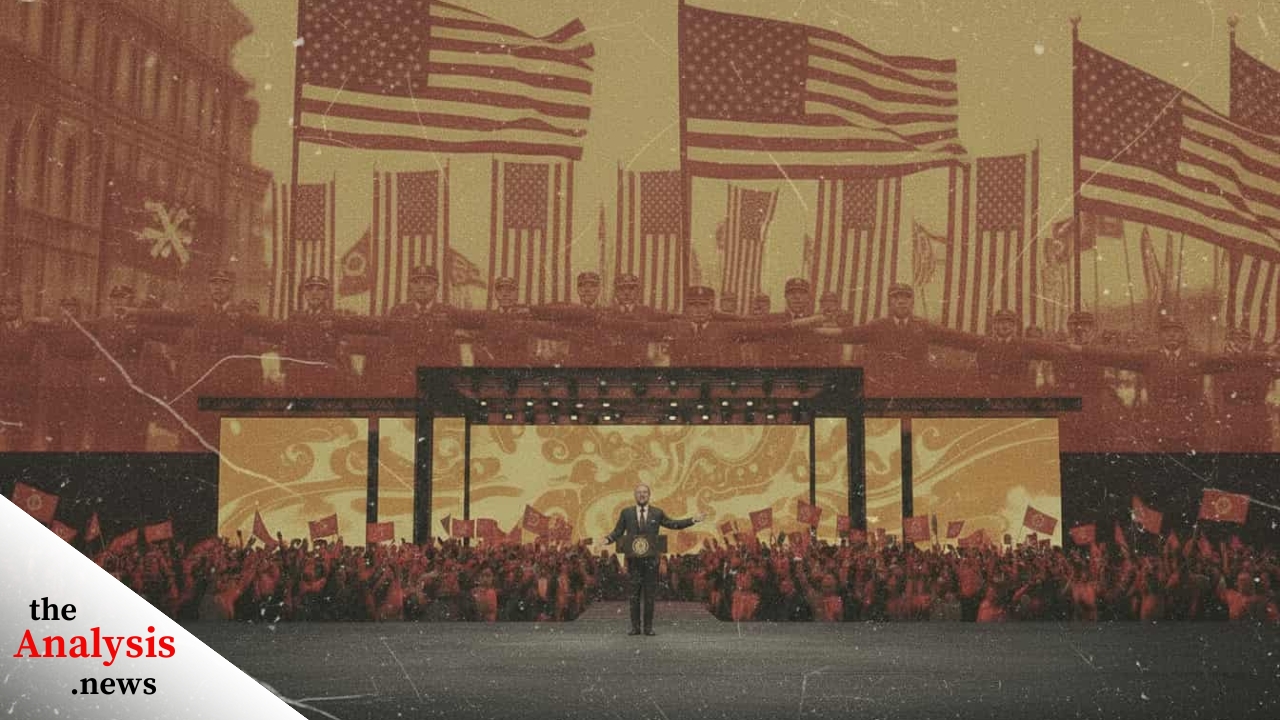
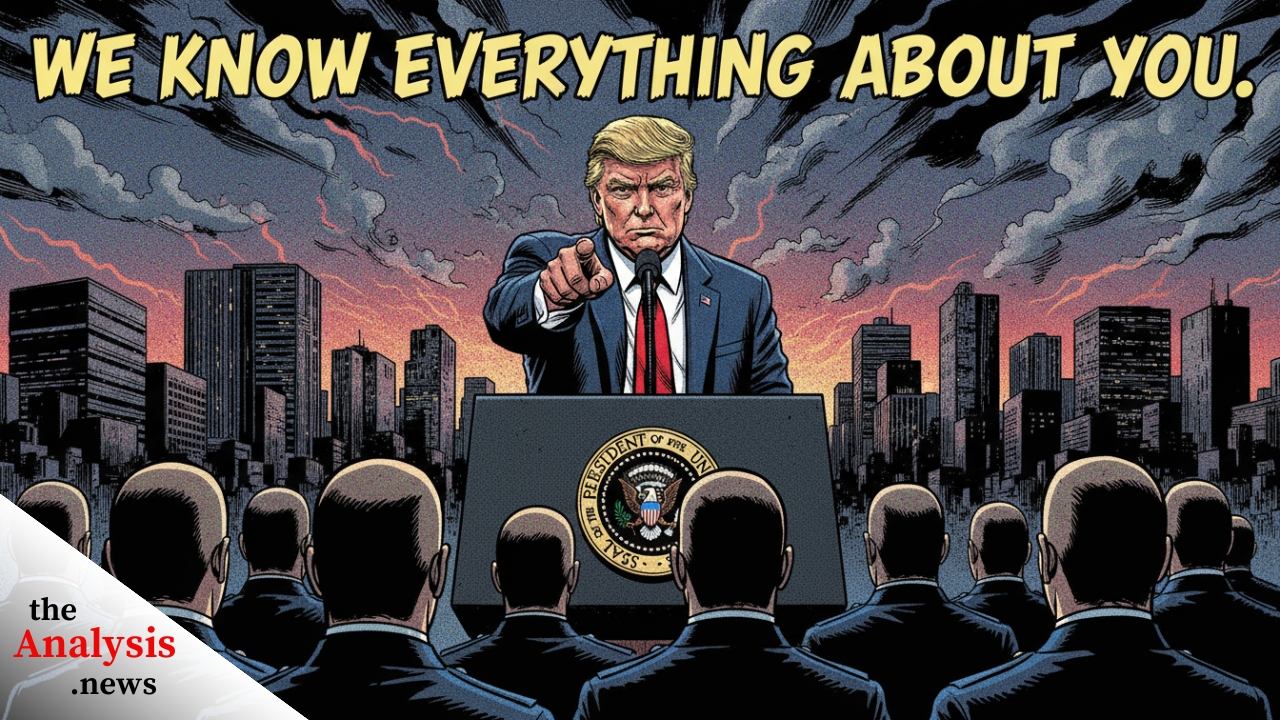
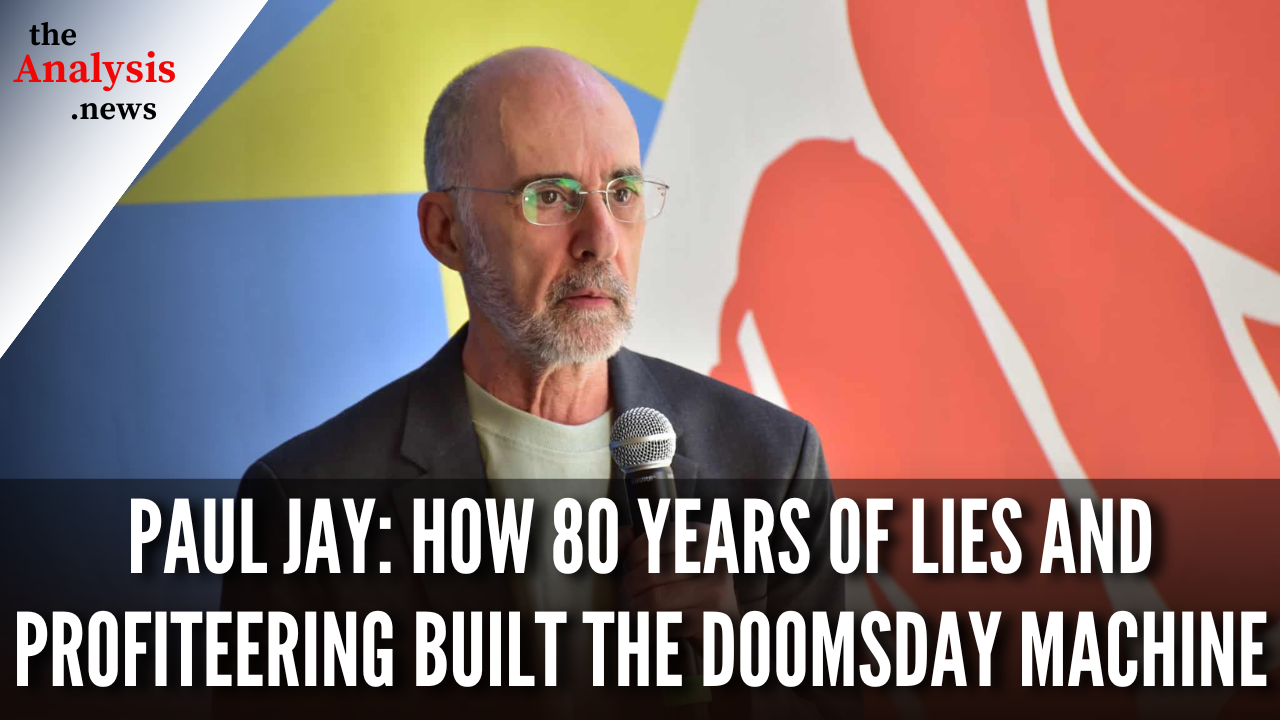
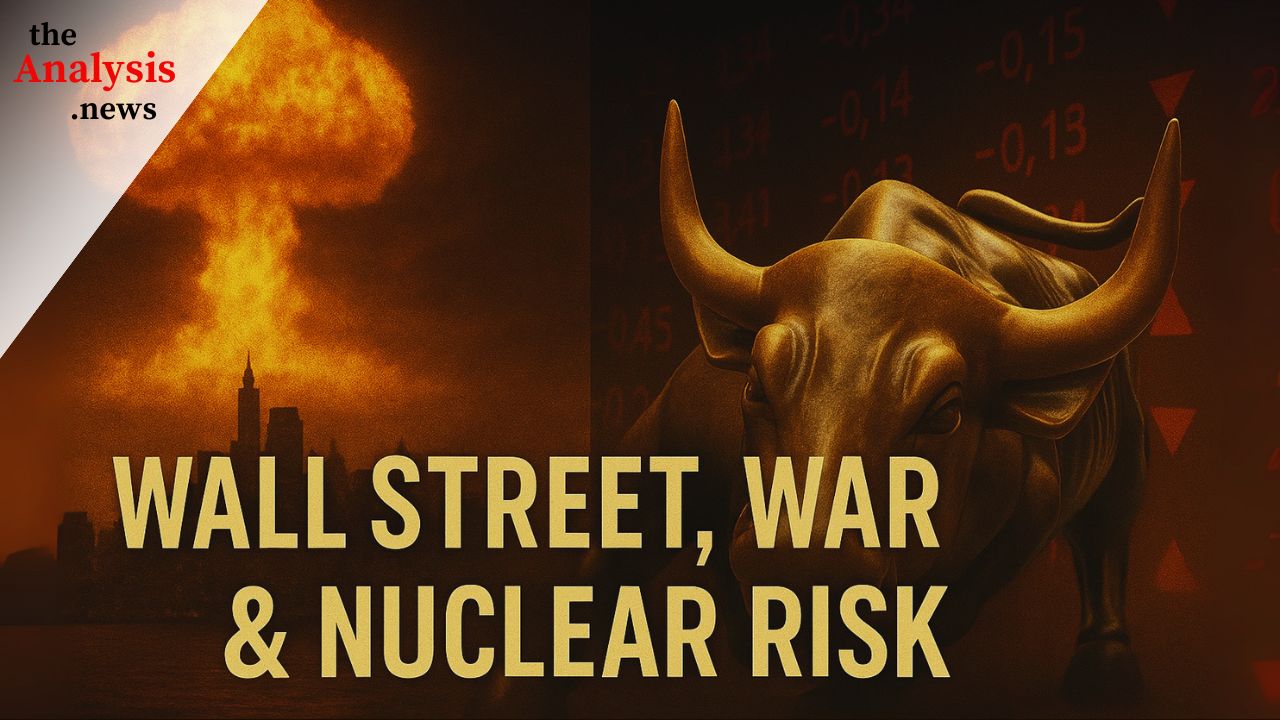
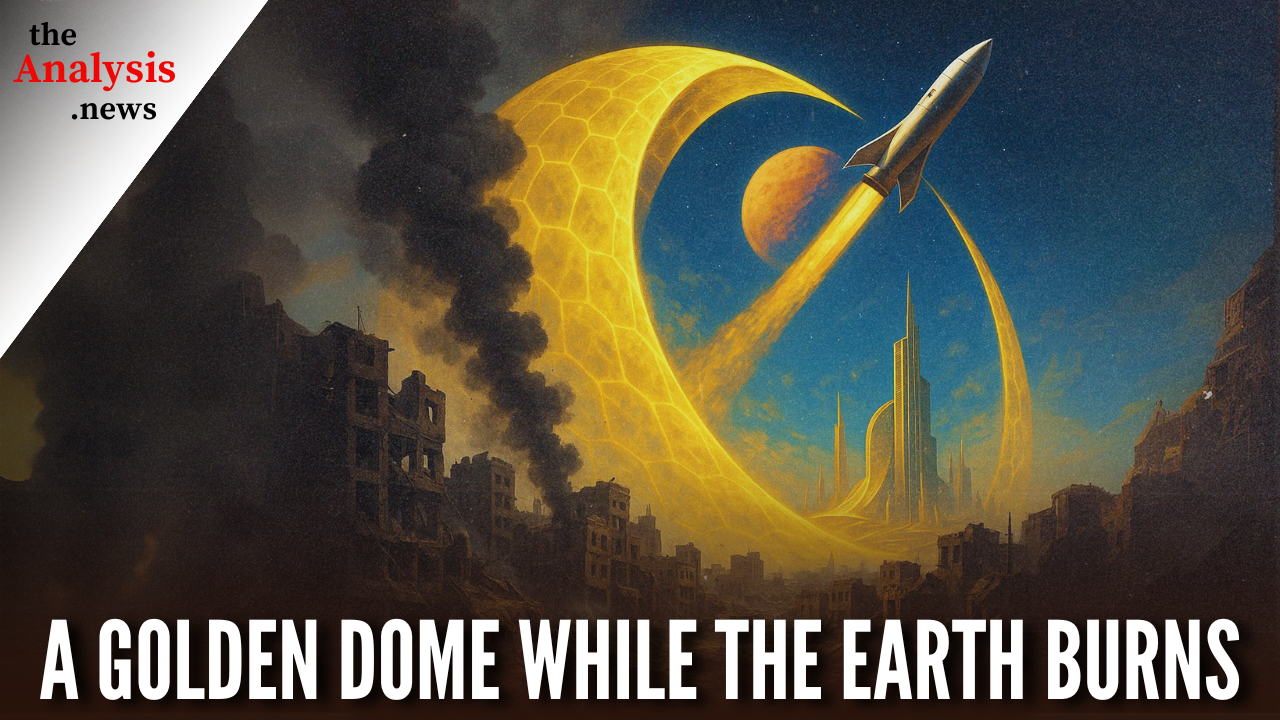
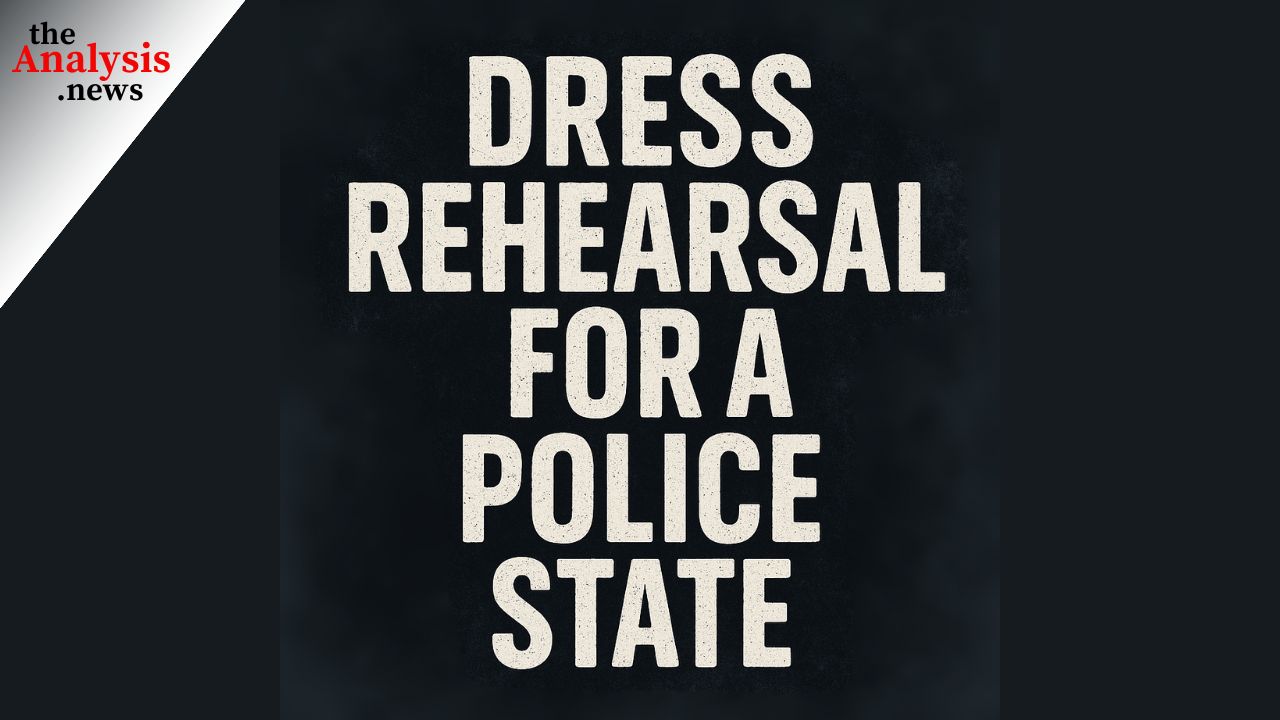
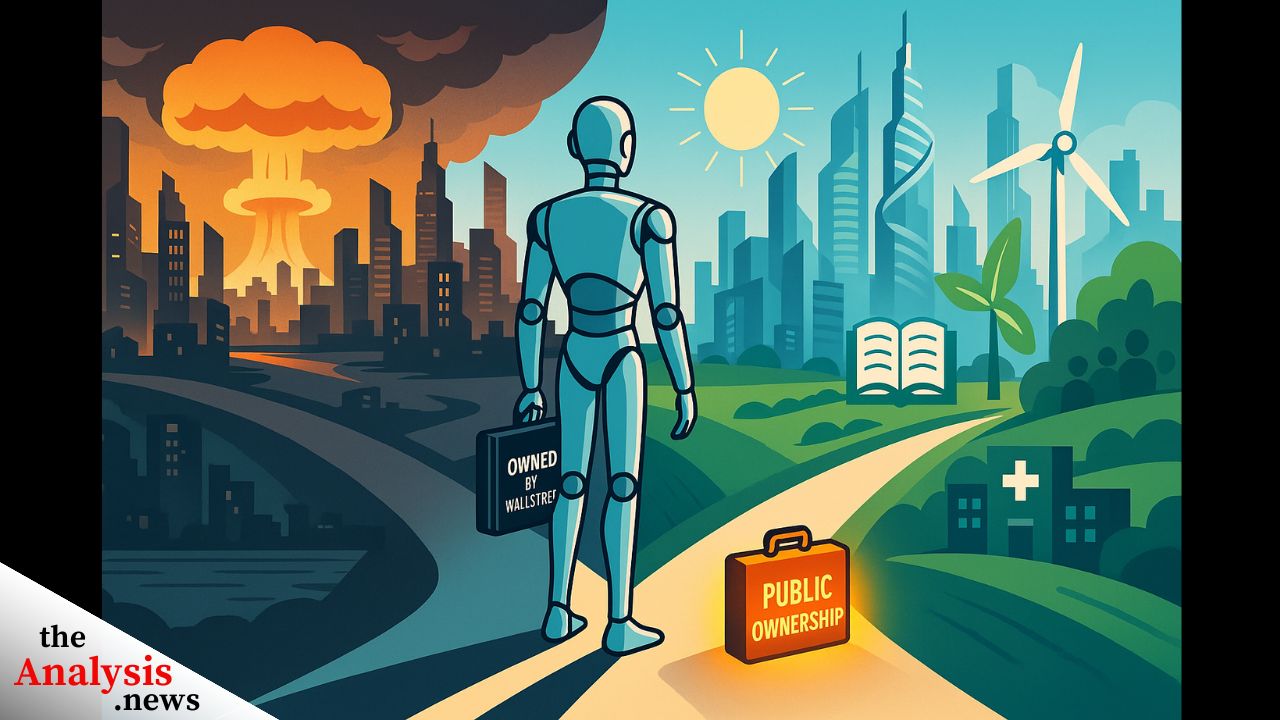
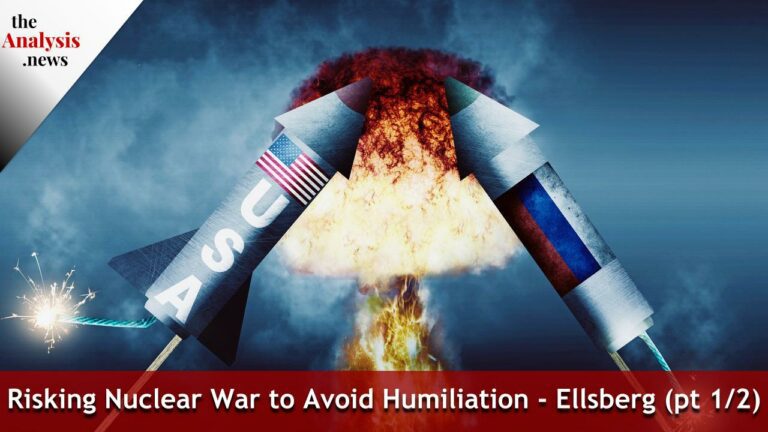



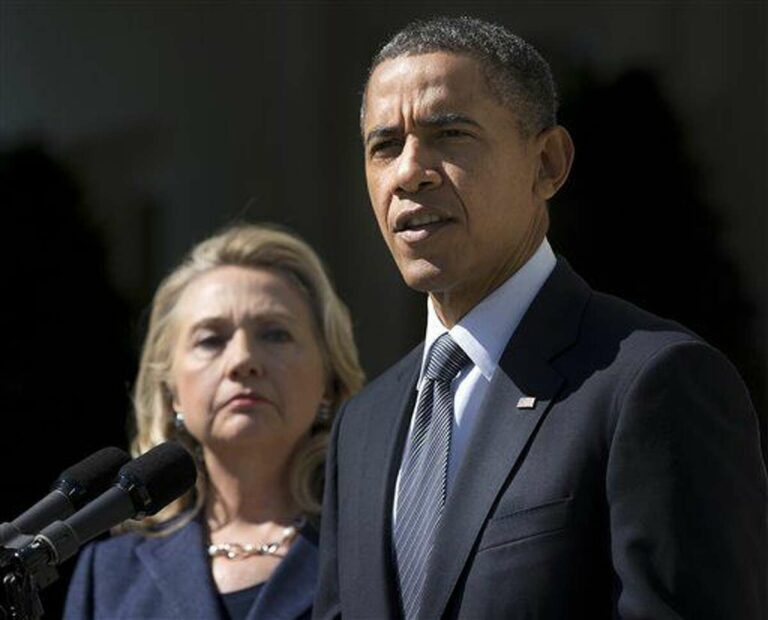
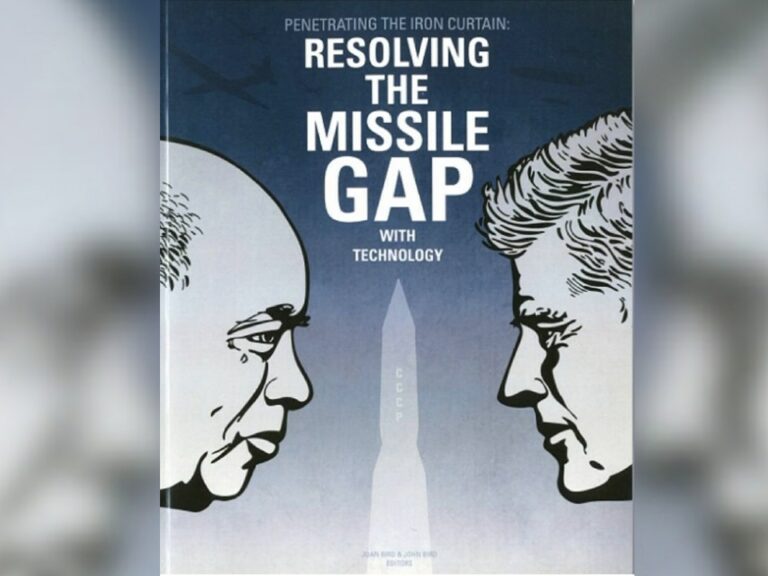
Great interview. A couple of quibbles. On Korea, NSC 68 & military spending back then.
“This was the plan that the government came up with to quadruple U.S. military spending in 1950. They had no traction at all until the Korean War started, and then the world was scared.”
is misleading, for there was a lot of traction. Yes, military spending quadrupled. But largely because the spending had earlier been cut by 75% – and this had the predictable effect of starting to cause a recession. Truman’s economic understanding – and thus policy was far below FDR’s, who by the late 30s came to understand Keynesian economics much better than 99% of today’s academic economists. So some spending had to be boosted and fast, or back to the Great Depression. This happened before Korea, which cemented it into stone. This is from 40 year old memory of Shoup & Minter’s Imperial Brain Trust, I think confirmable by old CEA reports.
Second, and more important:
“Also, Americans have no sense of history, zero. . . .George Santayana ..: “If you don’t remember the past, you’re condemned to repeat it.” However, he also said, “A nation without memory is a nation of madmen.”
Great addition to Santayana’s quote. But that Americans have no sense of history is not true. The left and history that sells itself as left has real blame for the present state of affairs, this lack of historical understanding. Trying to peddle a history that paints its audience as descended from relentless genocidal monsters is a tough job. Even if it is true – telling Germans about Hitler & the Nazis.
Peddling it when it is not true – is going to boomerang. It’s going to convince the audience the opposite is true and feed the Trumps & Hitlers & the Charlie Kirks. Just as the Russiagate farce – worse than a crime, a blunder – was essential to building Trump into the monster he is now.
Lincoln & the Civil War, Reconstruction etc has finally settled into a story that approximates reality. But FDR, the New Deal & WWII have not. FDR was far to the left of how he is portrayed in most histories, particularly left ones who are always saying he was reluctantly pushed into X, Y or Z – when the documentable reality is that FDR was working hard for X, Y & Z – in his Machiavellian way, which is how Socialist leader Norman Thomas described FDR’s M. O. in an entirely complimentary way.
Today’s left history is wildly too negative, addicted to priggish – and stupid – denunciations of heroes who actually had to do the hard political work in the real world. Cf FDR’s cool advice to members of the American Youth Congress. Or Lincoln Steffen’s meetings with political bosses – who he reduced to tears. It has gotten a lot worse since then. FDR by far, but also Steffens and these bosses were just more intelligent, serious & insightful people than today’s average lefty socialist historian.
Such “history” relentlessly accentuates the negative and eliminates the positive, most often by games of telephone, but by fabrication if need be. Howard Zinn, to his credit, disparaged this kind of history. To his discredit, he wrote a lot of it. It’s the difference between Zinn’s People’s History – and the superior, more reliable multivolume history that he rather cheesily lifted the title of – Page Smith’s earlier People’s History. This history is rightly unconvincing – and very effectively deracinates the Left from American soil. It is the opposite of Left history – back when when the Left was far more successful.
I would not include the present author in this denunciation by any means. His personal work only deserves grousing about at worst. But it is so rampant that without recognizing this, denouncing this, one is easily led astray into comfortable illusions and attitudes which are suicidal for the Left, which is the only hope left for the USA.
Great discussion. My only disagree would be with Kuznick’s statement that LEFTISTS have any power to stop Trump/maga/fascism. As much as leftist must oppose this fascism – & are – only liberals, at this time in space, have the power to stop Trump, but, afaic, MOST of them are cowering or capitulating and are reluctant to unite with leftists in a united front.